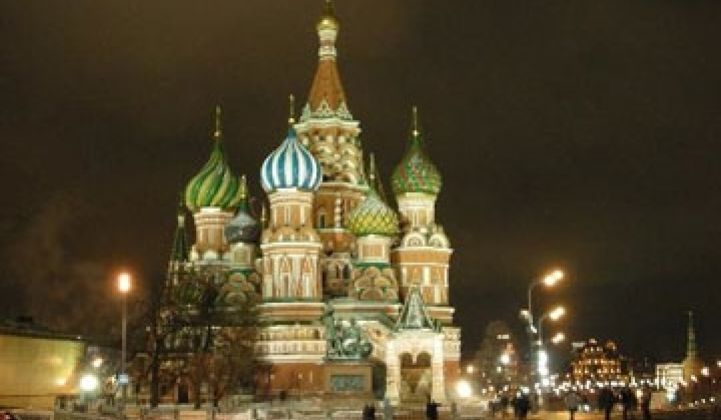A few years ago, I asked an investor who specialized in Russian and Eastern European investments what the current business climate and atmosphere was like in the Far East.
The level of scientific research and the quality of the scientists and engineers was top-notch, he said. A large number of the projects that had been inaugurated and funded by the former Soviet Union with potential commercial application had also not been exploited.
This corresponded with what I had heard from other companies. Intel years earlier had opened a lab in Nizny Novograd that performed much of the company's communications research. Ten PhDs could be hired for the price of a single American, former Intel exec Pat Gelsinger told me. Search engines like Yandex rivalled Google in the country. And ideas like underground coal gasification were coming to the West by being licensed to startups like Laurus Energy.
But then there was the policeman. Every once in a while on the streets of Moscow, the investor would get stopped by the same policeman. Money would exchange hands. It wasn't the size of the bribe I found unnerving, he said. It was the regularity with which these shakedowns occurred.
This is the dilemma that Russian President Dmitry Medvedev faced when he toured Silicon Valley recently and ones that future delegates on tour will face. Russian scientists excel at quality control, nuclear science, rocketry (SeaLaunch, a Russian-Ukrainian-Norwegian-U.S. firm puts satellites into space from a platform near Guyana), computer programming, and heavy industrial engineering. Yesterday, he pressed the flesh with Governor Ah-nold and Cisco CEO John Chambers.
Unfortunately, the infrastructure -- courts of law, standard accounting practices, financial institutions -- necessary to bring these ideas to market is less robust. I admit, many of the articles I wrote about Russia were completed in the mid-2000s, so things have likely improved a bit since then, but I think it's safe to say St. Petersburg still isn't Palo Alto on the Neva. That's why we've put it in the category of places where it remains unlikely that green tech hubs will emerge.
A little over two years ago, the Russian Venture Company (RVC) came through Silicon Valley with an offer. It wanted to hand over $1.25 billion to top-tier venture capital firms. The venture firms would have to invest the money -- along with some of their own money -- into Russian startups or startups created by Russian expatriates. The terms, though, were generous. The RVC only wanted its original money back plus 5 percent in interest.
While a few firms decided to work with the RVC, many remained skeptical, in part because the money from RVC originally came from the Russian oil and gas industry (the Yukos controversy with executives being put in jail was still raging at the time).
"Hooo, boy. Just look at the papers,"one VC said.
The concept of commercialization in Eastern Europe and Russia also remains weak. Granted, the U.S. right now enjoys a lead over the rest of the world when it comes to taking a concept in a university lab and turning it into a billion dollars, but many nations -- Israel, Ireland, Denmark, India, China -- are starting to master the process. Russia is way behind.
"Engineering training is sometimes better in Russia, but business training is better here," Andrey Fursenko, then Russia's minister of education and science, told me in 2005. A year earlier, Fursenko pushed a plan to loosen restrictions on commercializing university research. It got bogged down in Parliament.
Intel actually began to invest in Russia in 2003. Two years later, the then-head of Intel Capital, Claude Leglise, said that if he had the chance to roll back the clock, he probably wouldn't be there. "You can scour the country and find wonderful things, but you can't get a simple answer to who has to say yes" to starting a project, he told me.
But does that mean Russia won't participate in green tech? No. U.S. and European companies will scour Russia for patents and scientists. It will make a great outsourcing and R&D hub. Unfortunately for Russia, that means that a lot of the benefits will migrate out of the country.



